Panaji: Thirty-nine-year-old Siya Shaikh doesn’t take a single call after 6:30 pm, freeing up the evening for herself and her six-year-old child. Snigdha Manchanda, 40, savours her weekends with open-sea swimming, while Sapna Shahani, 40, spends three evenings a week playing football with her friends.
This isn’t just a window into the leisurely life in Goa, India’s party capital.
By day, Shaikh, Manchanda, and Shahani are all trailblazing start-up founders, running successful businesses in the tiny coastal state.
These three women, along with many others, are products of Goa’s booming business ecosystem. Not just that, Goa is a frontrunner among Indian states when it comes to women-led businesses. Over a third of the state’s startups are led by women, according to state government data. It’s legions ahead of the national average of 18 percent estimated in a 2023 report by venture capital non-profit ACT For Women.
Subverting its reputation as a siesta coast, Goa has surprised many by its climb in India’s ease-of-doing-business rankings in recent years—jumping from 21st in 2016 to 16th in 2022. Women entrepreneurs say getting licences here is easier than many other states and that the cultural climate is friendly to both business and leisure.
Being closer to nature, surrounded by greenery, away from blaring sounds and lights, brings a sense of focus. I was working 16 hours a day but hardly felt it in my body or mind
-Sapna Shahani, founder of digital marketing company Blurb
“Business and leadership come naturally to women in the Goan culture. Typically, the men go for work on cruises, while the women stay back home, running the family’s shops and other small ventures,” said Thejus Joseph, the interim chief executive of Forum for Innovation, Incubation, Research and Entrepreneurship (Fiire), a government-funded startup incubator in Goa. “It’s an environment that encourages women leaders.”
Many of these women entrepreneurs are not originally from Goa, but have chosen it as a business base, finding it easier to work in peace and thrive here. The fresh air, golden beaches, and dense forests are a welcome bonus. Some settle into a happy plateau here, while others expand their businesses beyond Goa.
“Goa offers a work-life balance. If I have a busy day, and I want to skip a business event that is not absolutely imperative to attend, I can. There’s no rat race or a mad rush to fill every hour of the day doing something productive,” said Sunaya Shirodkar, founder of Asier Solutions, a company that makes robotic kits and offers STEM learning activities for students.
While incubation centres across the country run accelerator programmes to fast-track startups, Goa is “almost like a de-accelerator” that ends up boosting productivity, according to Joseph. It’s a place where a long work day doesn’t wear out the mind, with the serene atmosphere and visual balm of nature making it easier to drown out the noise and create.
Moreover, entrepreneurs here also highlight that gender equality is more ingrained in Goan culture than in most other parts of India. The smallest Indian state, Goa has the third-best female literacy rate in the country, after Kerala and Mizoram. It also has a higher share of women-headed households than most other states. At 24 percent, Goa far surpasses the national average of 11.5 percent in rural areas and 12.5 percent in urban areas in this regard.
The stereotypical image of Goa’s ‘susegad’ ethos—laid-back and relaxed—does not translate to lackadaisical processes. Many women entrepreneurs report encountering fewer systemic hurdles here than in major business hubs like Bengaluru and Mumbai, including efficient approval and incentive-delivery mechanisms.
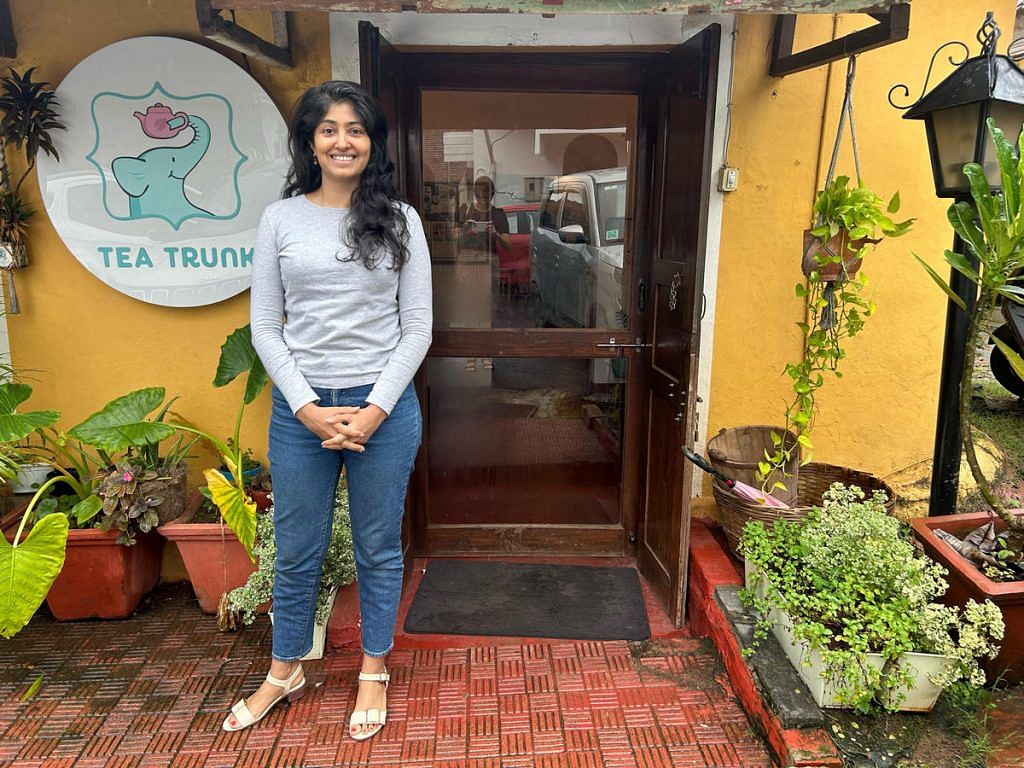
The very concept of susegad is misunderstood, pointed out Snigdha Manchanda, founder of Tea Trunk, a Panaji-based café and tea brand, with 20 Goans in her team of 21 employees.
“Susegad is actually quite different. Everyone knows that a finite amount of work has to be done, so like clockwork, at 9 am sharp, people are in office and at 6 pm they are out,” said Manchanda, a certified tea sommelier. “As a start-up founder, it helps me with my work-life balance as well. I don’t have to hang around in the office after 6 pm.”
Goa’s flourishing landscape of female-led businesses has developed organically, without any special policies or incentives for women. The state government is only now catching up with this trend and owning it as The Goa Story.
Goa has 225 startups registered with the state government for availing incentives, of which 76, or over 33 per cent, are led by women entrepreneurs.
Also Read: Chicken feather plastics, temple flower foam—IIT Kanpur is changing India’s startup scene
An organic launchpad for women
An eye-catching patchwork of colours, shapes, and fonts pops out from a wall in the entrance lobby of FiiRE at Don Bosco Engineering College in South Goa’s Fatorda. It’s not a decoration but a postcard from Goa’s bright business future—the logos of companies incubated here in the present or past, covering sectors ranging from food and handicrafts to engineering and e-commerce.
Joseph paused in front of the 42 logos, quickly pointing out about a dozen of them: a company making STEM learning kits, a wedding-planning enterprise, an international e-commerce platform for traditional Goan products, and a venture creating items from coconuts. Women lead all these businesses.
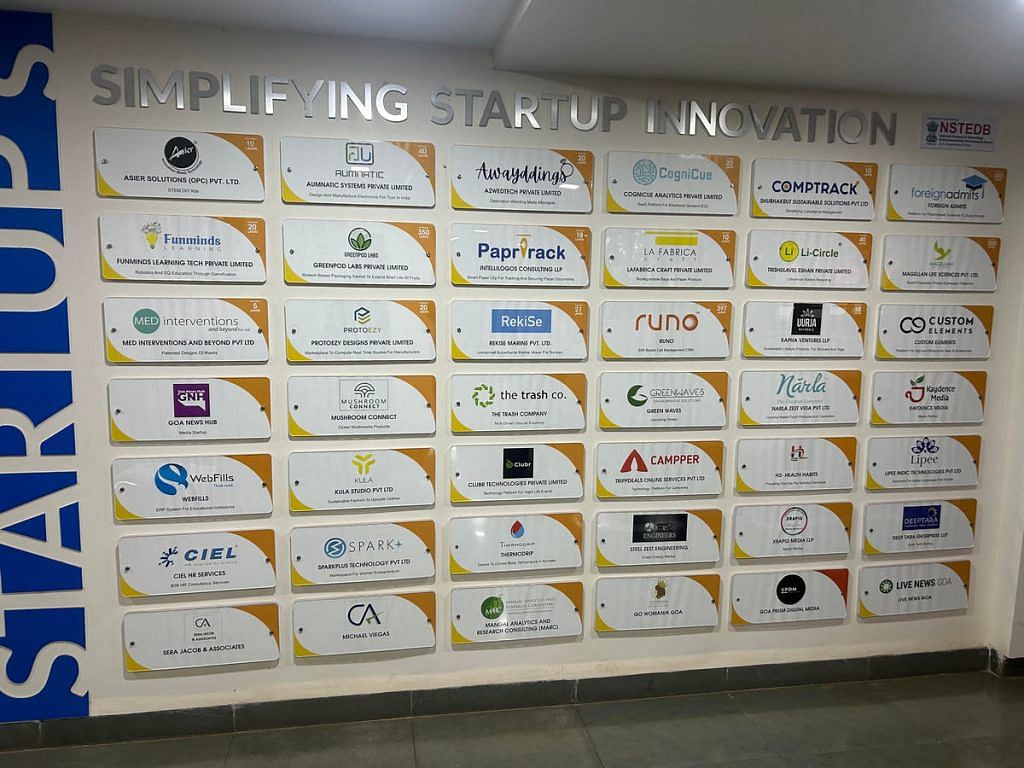
“It was never a conscious decision to have a certain number of women entrepreneurs here. We didn’t even realise that we had organically drawn so many of them until the state government came out with its numbers. About a third of our incubatees are women-led businesses,” said Joseph, who moved from Hyderabad to Goa to be with his wife, a non-Goan dentist practicing in the coastal state.
Goa has 225 startups registered with the state government for availing incentives, of which 76, or over 33 per cent, are led by women entrepreneurs. Overall, the state is home to 445 startups certified by the central government’s Department for Promotion of Industry and Internal Trade.
“Even if you look at the 445 companies from Goa certified as startups by the Centre, the proportion of women is about the same—30 per cent,” said Prashant DS, chief executive of Goa’s startup and IT promotion cell.
Goa’s success on this front is not by design—at least not in terms of measures implemented specifically for women. But stakeholders laud the Goa government’s overall startup policies. For instance, the startup cell has schemes to reimburse 50 per cent of R&D expenses, 100 per cent of application expenses for intellectual property rights, and 50 per cent of seat costs in co-working spaces. It also provides salary reimbursements for startups employing local Goans and freshers.
As businesses mature, they may move to other metros, but when it comes to building a product, women feel safe and find it convenient to settle down here
-Prashant DS, chief executive of Goa’s startup and IT promotion cell
While female-led startups have taken advantage of these schemes, none are exclusive to women. That may soon change. Building on its accidental success, Prashant said the state government is now considering rolling out two women-focused schemes: a fellowship for startups and a skill upgrade programme.
A little after 6 pm on a Wednesday, 36-year-old Shirodkar winds down on the first-floor verandah outside her office at FiiRE, cradling a hot coffee. She talks about how her passion was creating, but she had no knowledge of running a business. The assistance from FiiRE and the global platform Business Networking International helped her set up Asier Solutions. In three years, Asier has progressed from making three product kits to eleven and now has ambitions of setting up robotics and STEM learning labs in Goa’s schools.
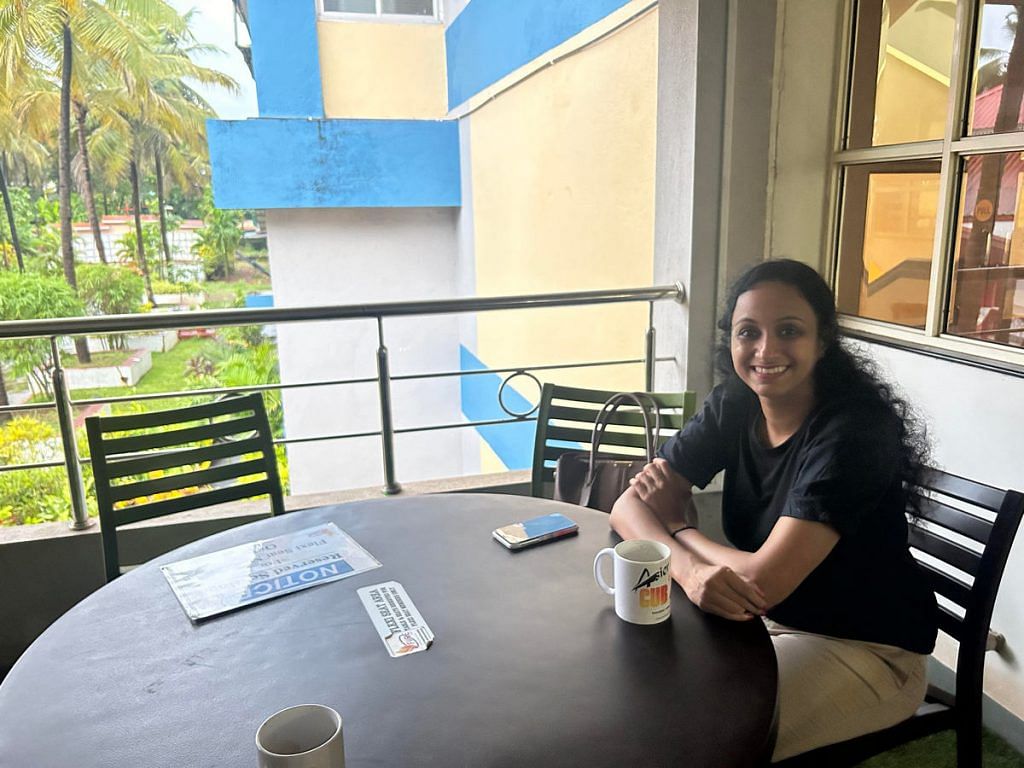
“Women have to put in just as much effort in applying for (startup) benefits as men do. Throughout my journey, nobody in Goa has ever seen me as a woman entrepreneur. In the eyes of everyone who has facilitated my journey, I have just been a startup, not a woman-led startup. It makes you feel like an equal,” she said.
Shirodkar is soft-spoken and mild-mannered, but at work, she deftly manages an all-male team. Women, according to her, tend to be better lateral thinkers than men.
“I can deal with a new marketing pitch, correspond with schools on our STEM curriculum, handle technical glitches, help with a community college set-up, network outside to grow the company, and give media interviews all in a day’s work without getting flustered,” Shirodkar said. “We women are natural multi-taskers. The men, on the other hand, handle things task by task.”
Shirodkar, a former teacher in an engineering college, was born and brought up in Goa and completed all her education here too. She has big dreams. She wants to have an Asier Solutions centre in every major Indian metropolis and eventually take her business with Goan roots global.
A large number of businesses in Goa are not registered with the government. But in the past few years, the state government has been pushing to bring these founders into the fold, making them part of Goa’s success story
A magnet for settlers
In a cosy corner of Panaji’s quaint Fontainhas neighbourhood, Manchanda cheerfully greets her employee at the entrance of her Tea Trunk café. Savouring a guava cheese chocolate chip cookie served by her staff, she says she initially wanted to start her business in her home city Mumbai, but was discouraged by the process of getting a license from the Food Safety and Standards Authority of India (FSSAI).
“I knew how hard it was in Mumbai. And to get that license, as a solo woman founder, I couldn’t see myself going to the office and sitting there for hours,” she said. “Then, because it is a product business the warehouse was going to be in Bhiwandi because that’s all I could afford. I thought, okay, this does not work, I am not going to have an office in Bhiwandi and I am not sitting outside the FSSAI office for hours.”
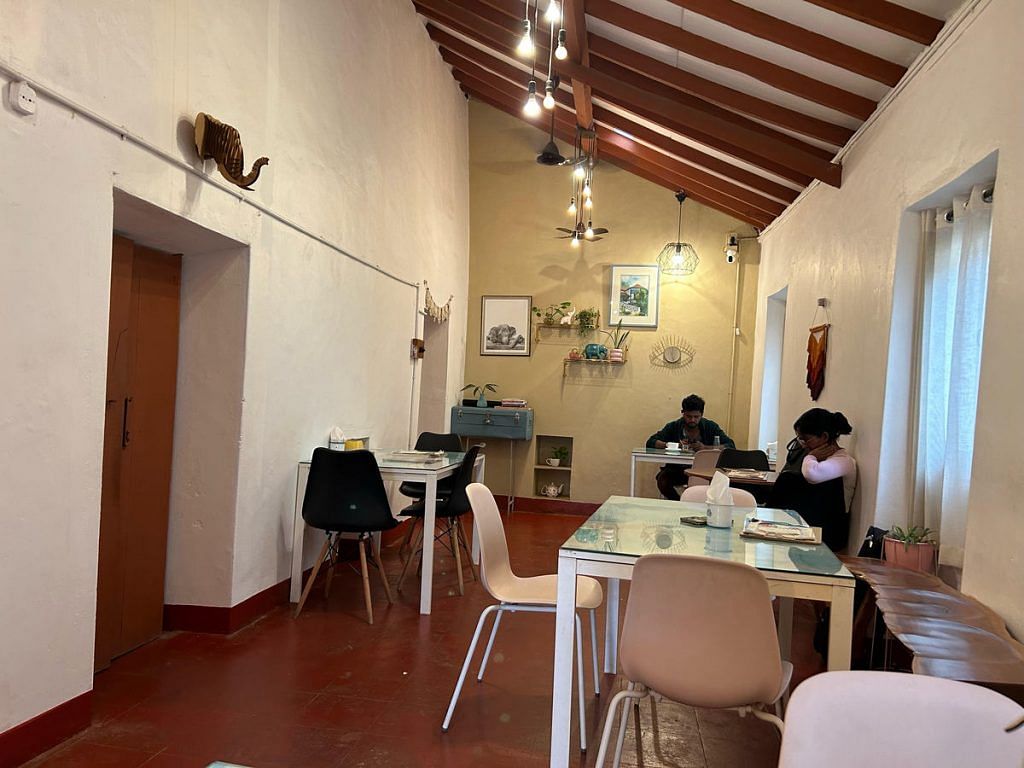
On a whim, she applied for an FSSAI license in Goa, where the application was available online even 12 years ago. Within a week, she received a call from the regional office saying her licence was ready and asking for an address to deliver it.
“That’s when I decided to move to Goa. I set up my business, got a trade licence, and institutionalised Tea Trunk. There are quite a few women entrepreneurs here—probably because of the ease of doing business,” Manchanda said, sipping on one of her brews.
On a Thursday afternoon, two tourists were tasting craft teas at a corner table under lights hanging from wooden rafters. A local singer strummed her guitar, crooning ‘Maria Pitache’, a Konkani song.
Manchanda pointed out it’s highly unlikely that she would have been able to create such an inviting space in Mumbai.
We go to the beach either on Saturday or Sunday and walk for long hours. I can run a company and still peacefully do that without the threat of being pulled into a work crisis.
-Sunaya Shirodkar, founder of Asier Solutions
Opening a cafe and a restaurant had followed as a natural next step to her products business and getting all the clearances and permits was a hassle-free experience in Goa, she said.
Having reached a ceiling in Goa, Tea Trunk is now expanding to Bengaluru. However, Manchanda noted that the same processes that she had to go through in Goa are turning out to be comparatively cumbersome in Karnataka.
There are no official statistics on this, but there are many like Manchanda who have found the perfect calm environment to nurture and grow their businesses in Goa. They are challenging the notion that the hustle culture of big cities is the spark needed to unleash the entrepreneurial spirit.
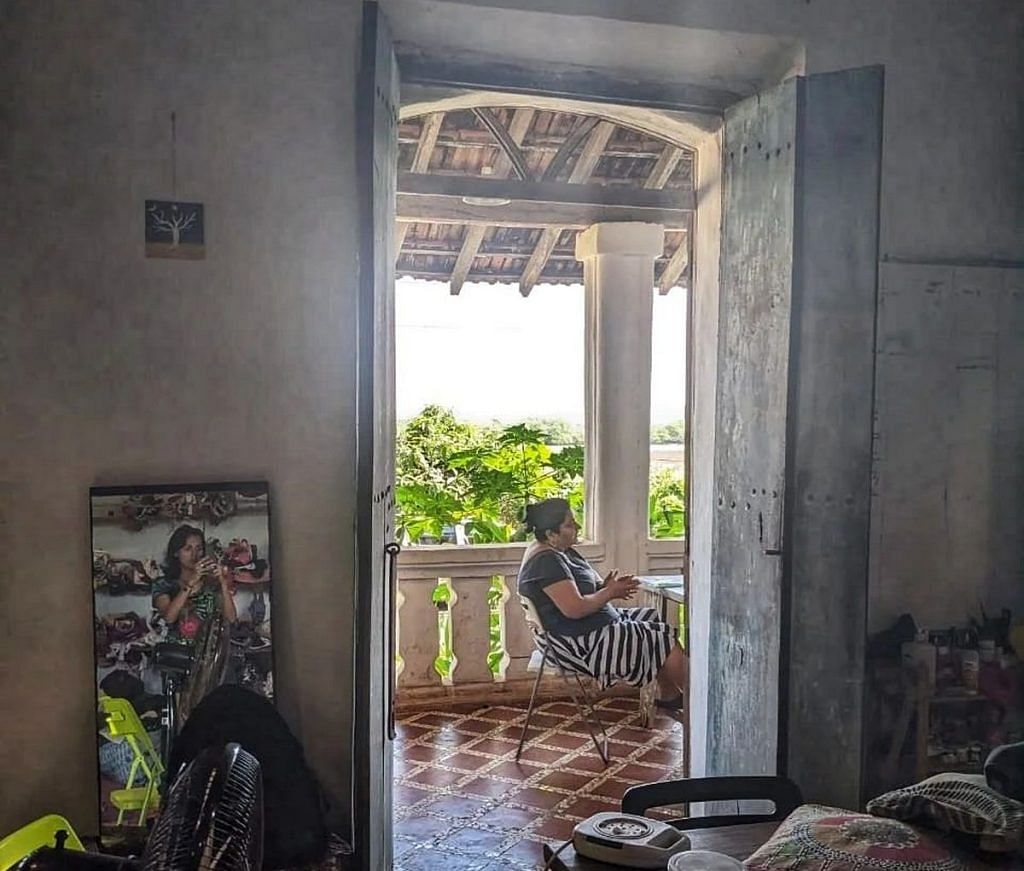
“Startups across the country have set up in Goa because the ecosystem allows that kind of opportunity for people. We find a lot of people who are coming to Goa, settling down here and starting businesses,” Prashant said.
A large number of these businesses, he added, make women-centric products, like beauty and wellness items or handicrafts.
“As businesses mature, they may move to other metros, but when it comes to building a product, women feel safe and find it convenient to settle down here,” Prashant added.
Among these businesses is WebN, a networking platform for women entrepreneurs. Siya Shaikh, who was born and raised in Goa, started the platform in 2018. It now has 110 members across four chapters in the state, with the women entrepreneurs helping each other with referrals, networks, skills, and experiences.
“At WebN, 70 percent of the members are settlers in Goa. They are very passionate about their work, enthusiastic, creative minded, and learners. They are generating a lot of employment for the people of Goa. With over 110 members, the collective business that we have done so far is about Rs 15 crore,” said Shaikh, adding WebN now has a turnover of about Rs 8-9 lakh a year.
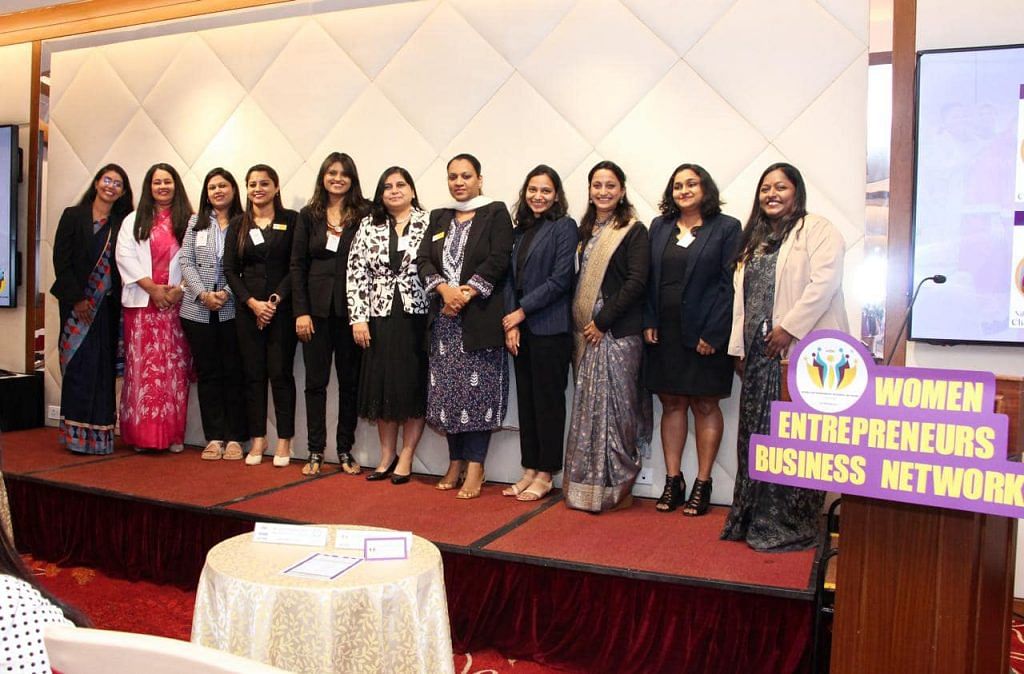
Shaikh’s first business was a network marketing company in Pune, which shut down when she returned to Goa to get married. She then dabbled in manufacturing fibre doors, even setting up a small factory, before finding her true calling: connecting small women-led businesses, from tailoring to pickle-making, to each other and to potential clients.
With this intention, she started GoWomaniya in 2016. The idea for WebN came as an extension of her work for small-scale, household businesses.
These platforms have boosted women entrepreneurship in Goa, Shaikh claimed.
“The ‘main bhi kar sakti hun’ (I can also do it) mindset has come because of the community,” she said.
Goa’s charm and facilitative startup ecosystem come with some trade-offs, the biggest being shortfalls in basic hard infrastructure.
Also Read: Private security is a top job creator in India. It’s a booming, recession-free business empire
Infra hiccups vs work-life balance
About three years ago, Sapna Shahani, originally from Mumbai but now settled in the idyllic North Goa village of Parra, got a surprise call from a consultant working with the Goa government. It was some free advice to turn her small business into a private limited company so she could to tap into various state government schemes.
This is how Shahani, who runs Blurb, a digital marketing company with several Goan restaurants and hotels as clients, got on the official startup grid.
A large number of businesses in Goa are not registered with the government. But in the past few years, the state government has been pushing to bring these founders into the fold, making them part of Goa’s success story, and helping them take advantage of various startup schemes. They are, after all, Goa’s new ambassadors.
After registering, Shahani got reimbursements for some of the salary payments she had made for the locals and freshers she’d hired.
“In the middle of the pandemic, the money came as a breather,” Shahani said.
But Goa’s charm and facilitative startup ecosystem come with some trade-offs, the biggest being shortfalls in basic hard infrastructure.
“Whether it is power supply, or water supply, we have to put in additional efforts to get the basic facilities that the government is expected to provide,” Shahani said.
Almost on cue, her roof starts leaking as the rain finds a gap between the red bricks and a glass skylight, dripping from over her coffee table to the floor. The lights go off for a minute before the inverter kicks in. On the other side of her home office, her three employees continue clicking away on their laptops. It’s business as usual.
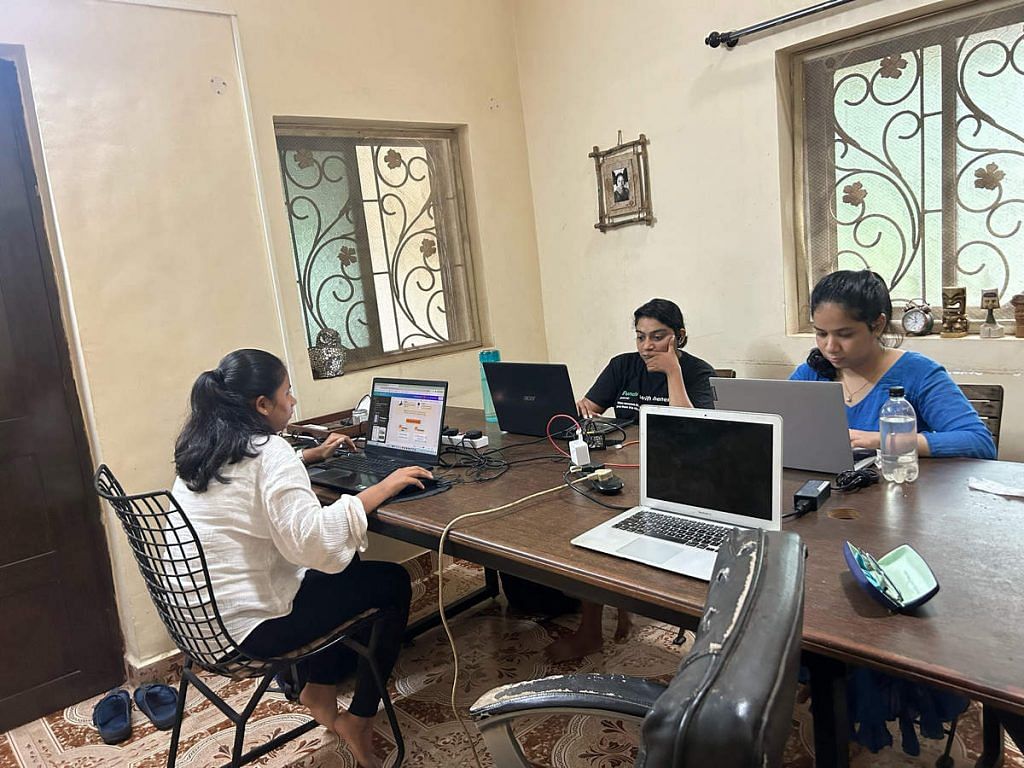
That same afternoon, the washroom at Tea Trunk was out of order due to a water supply issue.
But Shahani and Manchanda were hardly perturbed. For them, the perks of working in Goa still outweigh the inconveniences.
“Being closer to nature, surrounded by greenery, away from blaring sounds and lights, brings a sense of focus. When I first moved to Goa, I was running a project teaching women across the country how to run video blogs. I was working 16 hours a day but hardly felt it in my body or mind,” Shahani said.
She says she is grateful for being able to run a successful company and still hit the football field three days a week at 6 pm. All this while also working on another startup idea—a matchmaking business with a co-founder from a tech background.
Shaikh, a single parent, values the fact that she can leave the office at 12:30 pm, pick up her son from school, take him home, feed him, settle him down, and be back in the office by 3:30 pm every day.
Manchanda, too, revels in escaping the corporate grind of Mumbai, with entertainment limited to weekend outings to malls, cinemas, and restaurants. Swimming alongside dolphins and spotting jellyfish is far more satisfying.
As for Shirodkar, the family’s primary breadwinner since her father’s death 16 years ago, cherishes her evenings. She’s home to her mother by 6.30 or 7 pm, and on weekends upholds a “quintessential Goan family tradition”— a long walk on the beach.
“We go to the beach either on Saturday or Sunday and walk for long hours together,” Shirodkar said. “I can run a company and still peacefully do that without the threat of being pulled into a work crisis.”
(Edited by Asavari Singh)






